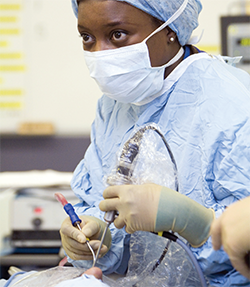
New Drug May Help Prevent, Treat Tinnitus
By slightly modifying a drug currently used to treat epilepsy, researchers have come up with a new compound with the potential for superior efficacy in treating the disease, with fewer […]

By slightly modifying a drug currently used to treat epilepsy, researchers have come up with a new compound with the potential for superior efficacy in treating the disease, with fewer […]

Otolaryngologists should keep in mind the risk of adverse events during in-office treatments that may catch the surgeon and support staff off guard

Tips on navigating conflict and effectively resolving issues among colleagues, peers patients and their families

Conduct periodic internal reviews of your practice operations

Tips for discussing, handling your observations of cognitive deterioration in aging surgeons

A timeline of events that led to functional endoscopic sinus surgery
Data shows that a significant number of visits related to otologic complaints, especially in the pediatric population, are nonemergent in nature.
Chronic rhinosinusitis patients considering surgery should make decisions guided by their pre-operative QoL impairment, as measured using the SNOT-22
Head and neck oncologists continue to struggle with understanding the etiology of second primary squamous cancer
The development of squamous cell carcinoma involving the oral tongue in never smokers has been the topic of debate for many years and remains a challenge

Common measures for minimizing risk include drain placement, application of tissue sealant and use of compression dressings
Airway, tongue, soft palate, and lateral wall volumes change significantly after OSA-TORS